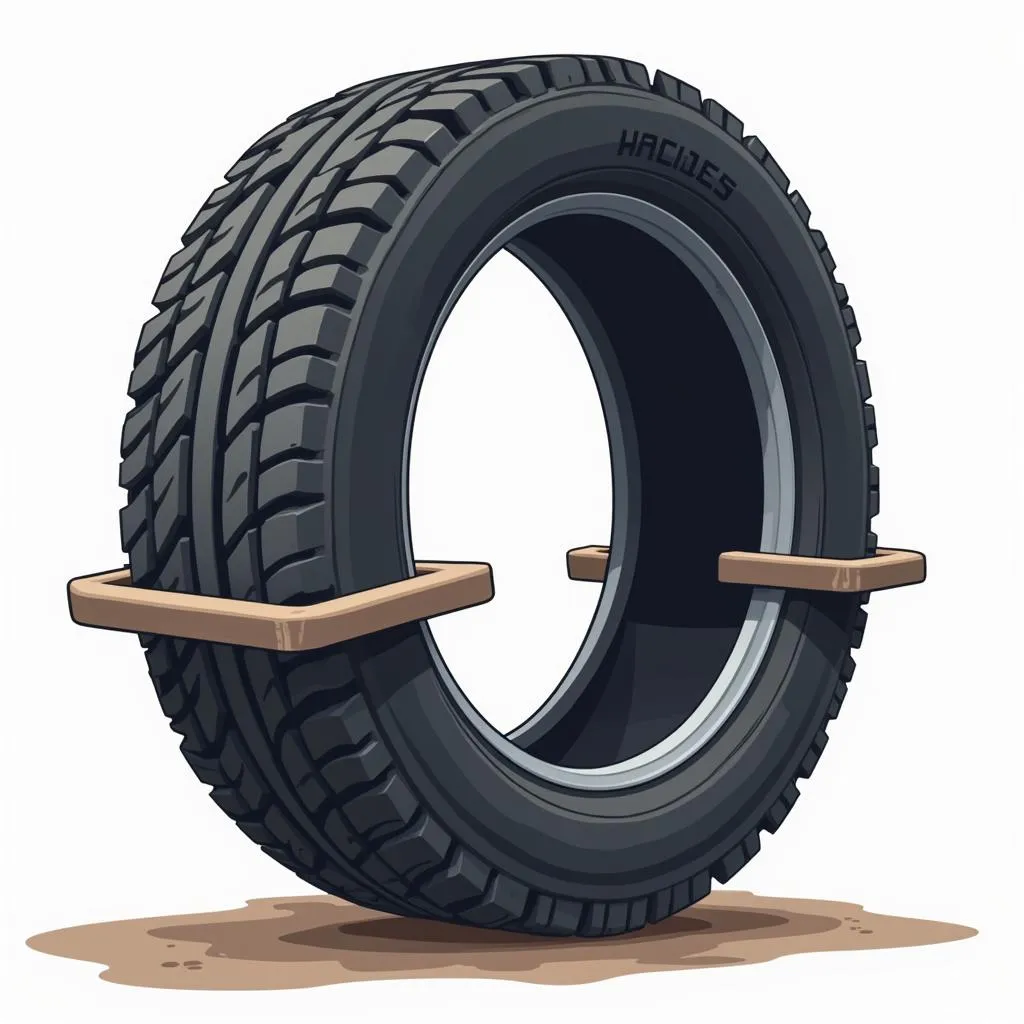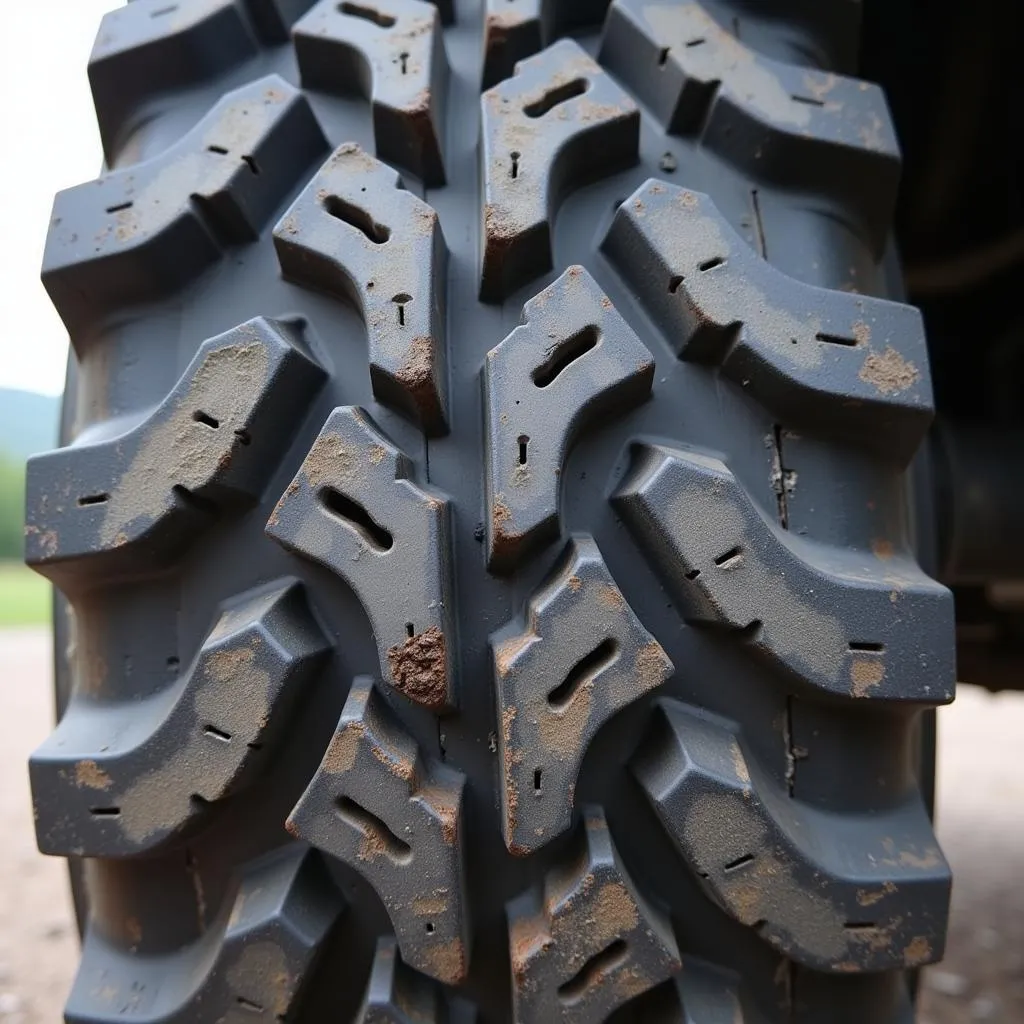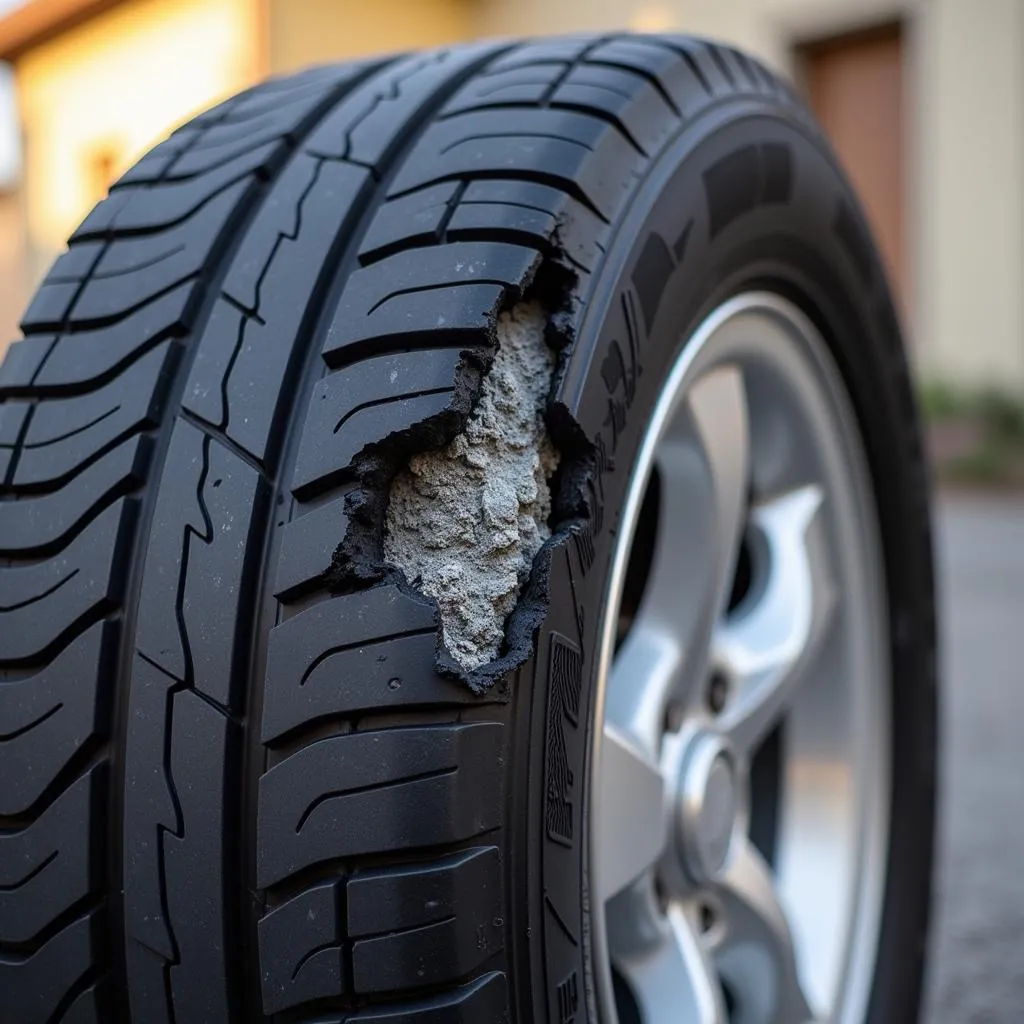Tire Vibration is a common problem that can be caused by a variety of factors. It can manifest as a slight shaking in the steering wheel, a humming noise, or even a violent shaking of the entire vehicle. Regardless of the severity, tire vibration should never be ignored as it can affect your vehicle’s handling and safety. This article will delve into the common causes of tire vibration and offer practical solutions to help you reclaim a smooth and safe ride.
Common Causes of Tire Vibration
Understanding the root cause of tire vibration is key to finding the right solution. Here are some of the most frequent culprits:
 Tire Imbalance Illustration
Tire Imbalance Illustration
Tire Imbalance: This is the most common cause of tire vibration. It happens when the weight of the tire is not evenly distributed around the circumference of the wheel. This imbalance creates a centrifugal force that causes the tire to vibrate at certain speeds.
How to detect: Vibration is often felt at speeds between 50-70 mph.
Solution: Have your tires balanced by a professional technician.
 Worn Tire Tread
Worn Tire Tread
Worn Tires: As tires wear down, their tread becomes shallower, and they lose their ability to grip the road surface effectively. This can lead to vibration, especially at higher speeds.
How to detect: Uneven wear patterns on your tires, difficulty braking, and reduced traction.
Solution: Replace your tires when the tread depth reaches 2/32 of an inch or less.
 Tire Damage – Bulge
Tire Damage – Bulge
Tire Damage: Impacts with potholes, curbs, or other road hazards can damage the internal structure of a tire or create bulges on the sidewall. This damage can cause a noticeable vibration.
How to detect: Visible bulges, cuts, or cracks on your tire sidewall.
Solution: Replace the damaged tire immediately.
Wheel Alignment Issues
When your wheels are not properly aligned, your tires are not making optimal contact with the road surface. This can result in uneven tire wear and vibration, particularly at higher speeds.
How to detect: Your vehicle pulls to one side, the steering wheel is not centered when driving straight, or you notice uneven tire wear.
Solution: Have your wheel alignment checked and adjusted by a professional technician.
Suspension Problems
Worn-out shocks, struts, or other suspension components can also contribute to tire vibration. These components help absorb shocks from the road and maintain tire contact with the road. When they wear out, your tires can bounce excessively, causing vibration.
How to detect: A bumpy ride, excessive bouncing after hitting a bump, or a noticeable dip or nosedive when braking.
Solution: Have your suspension system inspected and repair or replace any worn components.
Tire Vibration at Low Speeds: A Closer Look
While tire vibration is often associated with higher speeds, it can also occur at lower speeds. This is often indicative of a different set of problems, such as a flat spot on the tire (often caused by hard braking) or a problem with the wheel bearings.
Can New Tires Cause Vibration?
Surprisingly, yes! While new tires should ideally solve vibration issues, they can sometimes be the culprit. Improper mounting, balancing, or even manufacturing defects can cause new tires to vibrate. Always have new tires balanced after installation and inspect them for any visible defects.
Can Old Tires Cause Vibration?
As explained earlier, old tires with worn tread are more susceptible to vibration. The reduced tread depth makes them less effective at absorbing road imperfections, leading to a bumpier, more vibratory ride.
Truck Vibration at Highway Speeds: Specific Considerations
Trucks, especially larger ones, often experience tire vibration at highway speeds due to their weight and the increased stress on their tires and suspension systems. Ensuring proper tire pressure, balance, and alignment is crucial. Additionally, heavy loads should be distributed evenly to prevent excessive strain on specific tires.
The Importance of a Tire Pressure Monitor Tool
Maintaining the correct tire pressure is essential for preventing tire vibration and ensuring optimal tire performance and longevity. A tire pressure monitor tool allows you to regularly check and adjust your tire pressure, preventing issues caused by underinflation or overinflation.
“Regular vehicle maintenance, including tire inspection and care, is the most cost-effective way to prevent tire vibration and ensure a smooth and safe ride,” says John Smith, Senior Automotive Technician at XYZ Auto.
Conclusion
Tire vibration can be an unnerving experience, but understanding its causes and solutions can help you address the issue promptly and effectively. Regular vehicle maintenance, including tire inspection, wheel alignment, and suspension checks, can help prevent many vibration issues. If you experience any unusual vibrations, don’t hesitate to consult a qualified mechanic to diagnose and address the problem. Ignoring tire vibration not only compromises your driving comfort but also puts your safety at risk.
FAQ
1. Can a bent rim cause tire vibration?
Yes, a bent rim can definitely cause vibration. The wheel’s imbalance will lead to similar symptoms as an unbalanced tire.
2. How often should I balance my tires?
It’s generally recommended to balance your tires every 5,000 to 7,500 miles, or whenever you have new tires installed.
3. Can I fix tire vibration myself?
While some minor issues like tire pressure can be addressed at home, it’s best to consult a professional mechanic for diagnosis and repair of more complex problems like wheel alignment or suspension issues.
4. Is it safe to drive with tire vibration?
Driving with persistent tire vibration is not recommended. It can worsen existing problems, lead to uneven tire wear, and affect your vehicle’s handling and safety.
5. How much does it cost to fix tire vibration?
The cost can vary greatly depending on the underlying cause. Simple tire balancing can be relatively inexpensive, while repairs involving suspension components or wheel replacement can be more costly.
** For further assistance, please don’t hesitate to contact our dedicated support team via WhatsApp: +1(641)206-8880, Email: [email protected] or visit our workshop at 276 Reock St, City of Orange, NJ 07050, United States. We’re available 24/7 to assist you. You can also find more information about other car problems in our website.